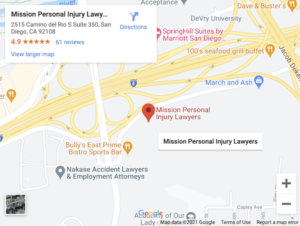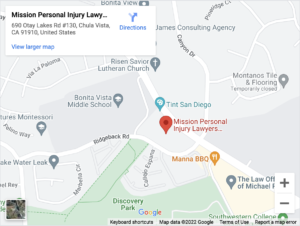
In a personal injury case, quality of life refers to an injury victim’s well-being, health, and ability to partake in and enjoy the activities of daily life. Common daily life activities covered by this term include caring for others, caring for oneself, earning a living, and participating in recreational pursuits.
When a person is hurt in an accident, the victim’s quality of life is often impacted. And when a person’s ability to participate in and enjoy the activities of daily life is diminished following an accident, they may be entitled to financial compensation from the responsible party. In this article, we discuss the loss of quality of life in a personal injury lawsuit in California.
Table of Contents
How the Loss of Quality of Life Relates To Pain and Suffering
In California, the loss of quality of life is included as part of a claim for pain and suffering. In the legal context, pain and suffering is the mental harm suffered by an accident victim due to their injuries.
What Are Some Examples of Injuries That Result in a Loss of Quality of Life?
Although any injury can diminish a person’s quality of life to a degree, the types of injuries that result in monetary awards for loss of quality of life tend to be serious.
For example, some common injuries that can lead to a loss of quality of life include:
- Limb loss
- Paralysis
- Traumatic brain injury
- Scarring
- Disfigurement
These claims tend to be affected the most by catastrophic injuries that significantly impact an accident victim’s life.
Losses Associated With a Diminished Quality of Life
Unlike concrete financial losses caused by an injury, such as medical bills, it can be difficult to put a price tag on loss of quality of life. Fortunately, courts have developed ways to value such claims and compensate victims accordingly.
In examining whether to provide an injury victim with financial compensation for a diminished quality of life, courts primarily review the relevant losses associated with the injury.
Common relevant losses include:
- Loss of the ability to participate in hobbies: Serious accidents often leave victims unable to participate in their hobbies.
- Loss of the companionship of friends, family, and associates: When an accident affects a person’s mobility, their ability to interact with friends, family members, and others is often affected.
- Loss of the opportunity to travel: A serious injury can affect one’s ability to travel.
- Loss of the ability to maintain the same career following an injury: When a person is unable to hold the same job following an accident, not only are they entitled to receive compensation for lost income, but this also may be compensable under a theory of loss of quality of life.
- Loss of the ability to act independently: A severe injury resulting in one’s loss of the ability to complete daily life activities without assistance may be compensable in a personal injury lawsuit.
- Loss of the ability to play with one’s children: When an accident prevents an injured victim from interacting with their young children, the court will take this into consideration when arriving at an award.
- Loss of quality of one’s marriage: Although this is different from a loss of consortium claim, both address the impact that an injury can have on a person’s marriage.
A personal injury claim aims to make the accident victim “whole” again. Accordingly, diminished quality of life damages seek to compensate people who are significantly impacted by their injuries.
Valuing the Loss of Quality of Life
There is no uniform formula used to calculate the value of the loss of quality of life experienced by a personal injury victim. The loss of quality of life is intangible; in other words, there are no invoices or receipts that the court can review when determining the value of a person’s diminished quality of life.
However, by reviewing the facts related to a case and providing a description of a person’s life before and after an accident, an experienced San Diego personal injury attorney can demonstrate to the court how an injury has diminished a victim’s quality of life.
Factors used to place a value on a person’s loss of quality of life include:
- The victim’s age
- The victim’s education
- The victim’s employment history
- The victim’s socioeconomic status
- The severity of the victim’s injuries
- The victim’s hobbies before the accident
- The victim’s physical appearance after the accident
Courts will also consider any dependents (e.g., young children) and relationships that were affected by the plaintiff’s injuries.
Contact a Personal Injury Lawyer for Help Valuing Your Diminished Quality of Life and Other Losses
If you’ve been injured in an accident in San Diego, CA, you should contact an experienced personal injury attorney immediately.
A San Diego personal injury lawyer will help you calculate the value of your claim, including your diminished quality of life. They can also protect your legal rights and ensure you recover the maximum compensation possible in your case. Call (619) 777-5555 to schedule a free initial consultation with an attorney at Mission Personal Injury Lawyers.


